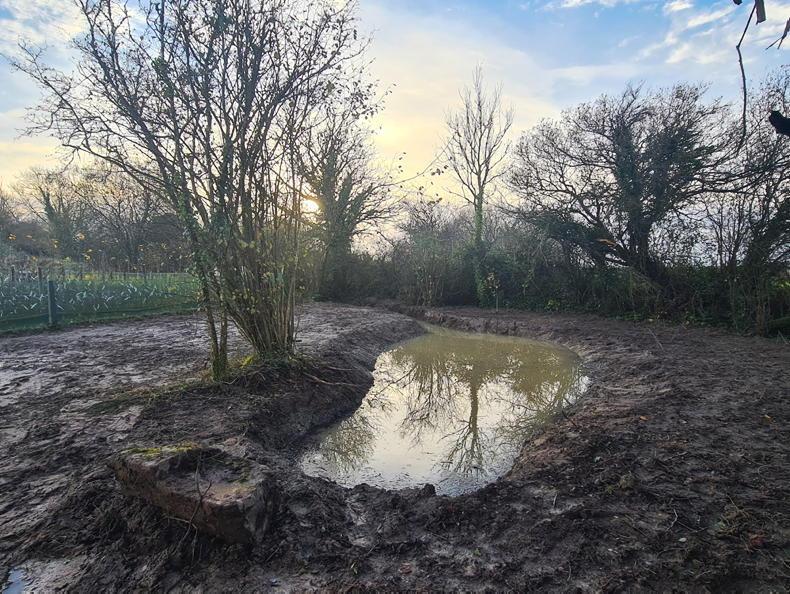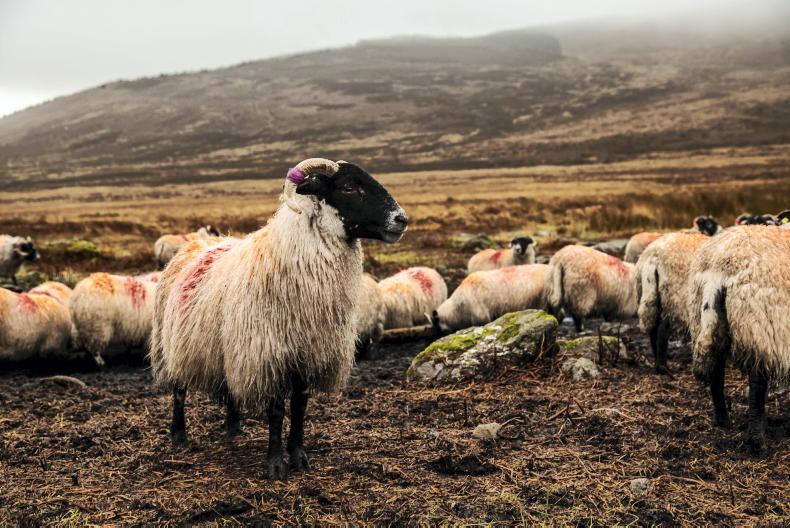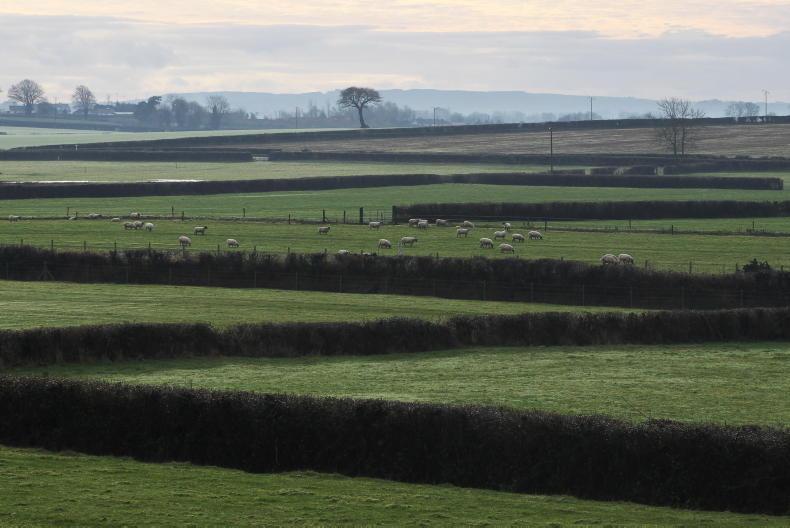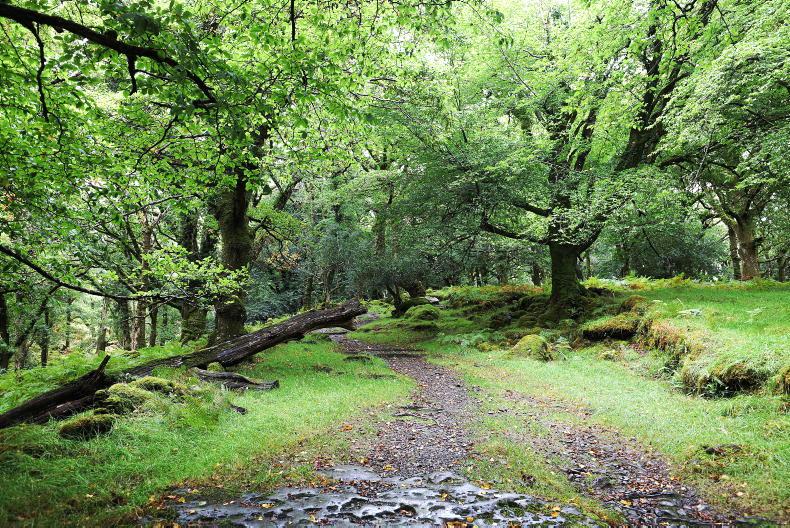For the past three decades, a small cohort of dedicated people in rural east Clare has been pursuing a vision of preserving heritage food crops across Ireland through an exhaustive process of ‘finding and minding’ these invaluable genetic resources.
Today, the Irish Seed Savers Association (ISSA) is a social enterprise and major local employer of 22 paid staff, managing a remarkable repository consisting of 200 varieties of heritage apple trees and over 800 varieties of heritage seeds. The combination of vision, hard graft and careful planning has certainly paid off: there can hardly be a more diverse and significant 20 acres of farmland in Ireland than this remarkable ‘small’ holding.
Not only that, but the relevance of ISSA’s mission is growing at a time of climate change and biodiversity (including genetic diversity) loss.

Elaine Bradley, executive director of ISSA.
Ironically however, as executive director Elaine Bradley explains, ISSA itself is already struggling to deal with the implications of climate change on a number of fronts.
Milder and wetter
New temperature records are being continually set and, while the average increases may seem incremental, it’s the related changes in weather patterns which really hurt. For instance, milder winters in recent years have meant that ISSA’s fruit trees take much longer to become dormant. This is because, unlike other perennials which respond to day-length (light), apple trees rely more on temperature levels to prompt them to shed leaves and enter ‘deep rest’.
For ISSA, this meant that the scheduled uprooting of over 10,000 heritage fruit trees last November (many of them destined for Agri-Climate Rural Environment Scheme, ACRES, farmers), had to be delayed until January, presenting a huge logistical challenge around the labour-intensive tasks of digging-out and distributing the trees.
Wet springs are also impacting – Elaine noted that 29 of the 31 days of March 2024 were wet, meaning pollinators performed poorly, resulting in a dismal apple harvest for ISSA and others. ISSA’s only decent apple crops came from orchards immediately adjacent to hives of native honeybees. But even natural solutions like keeping more native bees aren’t straightforward: Elaine worries that mild weather is leading to occasional “phenological mismatch” – whereby trees are blossoming (sometimes twice a year) when pollinators aren’t always available to pollinate them.
Rootstock remedies
Storm Éowyn had a huge impact for many farmers and foresters, and ISSA was no exception. Elaine’s team are moving to use larger rootstock for grafting their heritage trees, to help future-proof their priceless inventory against high winds. However, the trade-off with the bigger rootstock is that the grafted trees typically take longer to bear fruit.

A brand-new pond created at ISSA, Capparoe in east Clare.
Sourcing new disease-resistant rootstock (eg ‘Geneva’) is also something ISSA is exploring to counter the threat of bacterial diseases like fireblight which not only impacts whitethorn, but also apple and pear trees. Fireblight has been recorded within 40km of the Capparoe site, so biosecurity measures are being ramped up, as is the already-high level of vigilance. Another challenge presented by milder, damper summers is the increasing level of fungal infections. As a registered organic farm, ISSA has recourse to copper-based fungicides, but view these as a last resort. Instead, it is adapting its grassland and hedgerow management regimes to improve air circulation around trees to reduce fungal loads.
ISSA has its own dedicated (and meticulously catalogued) seed bank which it has to ‘refresh’ periodically by growing the seed, harvesting new seed and restoring it.
Additionally, it has sent seeds (21 varieties) to the ‘doomsday vault’ in the Arctic and recently ‘re-matriated’ Scottish scion wood to the Edinburgh Botanic Gardens.
It also has a ‘seed guardian network’ – trained landowners who grow heritage seed which ISSA guarantee to purchase back – and collaborate with a farmer in nearby Whitegate, paid to manage ISSA fruit trees.
This all contributes to ISSA’s mission to “build community wealth”.
But “conservation through use” remains the preferred approach for most heritage seeds, hence the engagement with schemes like ACRES, and projects like the Hare’s Corner, through which farmers and landowners help sustain genetic diversity in a functional way.
Visiting ISSA is a terrific day out, there is so much to see and learn, particularly so for those who enrol in workshops on everything from fruit tree pruning to building ‘log hives’ for native bees. The site is clearly managed with an admirable level of professionalism, as befits such a special resource.
ISSA really is a national treasure, an entity worthy of our support. Members get six packets of seeds annually, making it a fruitful investment, supporting ISSA’s great legacy – the keeping alive of food crops which sustained previous generations, and which may well be needed to sustain future ones.
Farmers can order heritage fruit trees up on irishseedsavers.ie/ ACRES until the end of March. In addition, non-ACRES farmers and landowners in Sligo, Galway, Limerick, Offaly, Meath and Carlow can get ISSA trees worth over €150 through The Hare’s Corner Project – see burrenbeo.com/thc to register (open call in early March). If planting an orchard, choose a relatively dry, sheltered site with a sunny aspect. Stake your trees and add guards if needed. Actively monitor and prune your trees to ensure the best outcomes.
Name: The Irish Seedsavers Association.Farm type: Heritage crop conservation and distribution.Farm size: 8ha.Focus: To conserve heritage food crops from across Ireland.Schemes: Organic Farming Scheme.
For the past three decades, a small cohort of dedicated people in rural east Clare has been pursuing a vision of preserving heritage food crops across Ireland through an exhaustive process of ‘finding and minding’ these invaluable genetic resources.
Today, the Irish Seed Savers Association (ISSA) is a social enterprise and major local employer of 22 paid staff, managing a remarkable repository consisting of 200 varieties of heritage apple trees and over 800 varieties of heritage seeds. The combination of vision, hard graft and careful planning has certainly paid off: there can hardly be a more diverse and significant 20 acres of farmland in Ireland than this remarkable ‘small’ holding.
Not only that, but the relevance of ISSA’s mission is growing at a time of climate change and biodiversity (including genetic diversity) loss.

Elaine Bradley, executive director of ISSA.
Ironically however, as executive director Elaine Bradley explains, ISSA itself is already struggling to deal with the implications of climate change on a number of fronts.
Milder and wetter
New temperature records are being continually set and, while the average increases may seem incremental, it’s the related changes in weather patterns which really hurt. For instance, milder winters in recent years have meant that ISSA’s fruit trees take much longer to become dormant. This is because, unlike other perennials which respond to day-length (light), apple trees rely more on temperature levels to prompt them to shed leaves and enter ‘deep rest’.
For ISSA, this meant that the scheduled uprooting of over 10,000 heritage fruit trees last November (many of them destined for Agri-Climate Rural Environment Scheme, ACRES, farmers), had to be delayed until January, presenting a huge logistical challenge around the labour-intensive tasks of digging-out and distributing the trees.
Wet springs are also impacting – Elaine noted that 29 of the 31 days of March 2024 were wet, meaning pollinators performed poorly, resulting in a dismal apple harvest for ISSA and others. ISSA’s only decent apple crops came from orchards immediately adjacent to hives of native honeybees. But even natural solutions like keeping more native bees aren’t straightforward: Elaine worries that mild weather is leading to occasional “phenological mismatch” – whereby trees are blossoming (sometimes twice a year) when pollinators aren’t always available to pollinate them.
Rootstock remedies
Storm Éowyn had a huge impact for many farmers and foresters, and ISSA was no exception. Elaine’s team are moving to use larger rootstock for grafting their heritage trees, to help future-proof their priceless inventory against high winds. However, the trade-off with the bigger rootstock is that the grafted trees typically take longer to bear fruit.

A brand-new pond created at ISSA, Capparoe in east Clare.
Sourcing new disease-resistant rootstock (eg ‘Geneva’) is also something ISSA is exploring to counter the threat of bacterial diseases like fireblight which not only impacts whitethorn, but also apple and pear trees. Fireblight has been recorded within 40km of the Capparoe site, so biosecurity measures are being ramped up, as is the already-high level of vigilance. Another challenge presented by milder, damper summers is the increasing level of fungal infections. As a registered organic farm, ISSA has recourse to copper-based fungicides, but view these as a last resort. Instead, it is adapting its grassland and hedgerow management regimes to improve air circulation around trees to reduce fungal loads.
ISSA has its own dedicated (and meticulously catalogued) seed bank which it has to ‘refresh’ periodically by growing the seed, harvesting new seed and restoring it.
Additionally, it has sent seeds (21 varieties) to the ‘doomsday vault’ in the Arctic and recently ‘re-matriated’ Scottish scion wood to the Edinburgh Botanic Gardens.
It also has a ‘seed guardian network’ – trained landowners who grow heritage seed which ISSA guarantee to purchase back – and collaborate with a farmer in nearby Whitegate, paid to manage ISSA fruit trees.
This all contributes to ISSA’s mission to “build community wealth”.
But “conservation through use” remains the preferred approach for most heritage seeds, hence the engagement with schemes like ACRES, and projects like the Hare’s Corner, through which farmers and landowners help sustain genetic diversity in a functional way.
Visiting ISSA is a terrific day out, there is so much to see and learn, particularly so for those who enrol in workshops on everything from fruit tree pruning to building ‘log hives’ for native bees. The site is clearly managed with an admirable level of professionalism, as befits such a special resource.
ISSA really is a national treasure, an entity worthy of our support. Members get six packets of seeds annually, making it a fruitful investment, supporting ISSA’s great legacy – the keeping alive of food crops which sustained previous generations, and which may well be needed to sustain future ones.
Farmers can order heritage fruit trees up on irishseedsavers.ie/ ACRES until the end of March. In addition, non-ACRES farmers and landowners in Sligo, Galway, Limerick, Offaly, Meath and Carlow can get ISSA trees worth over €150 through The Hare’s Corner Project – see burrenbeo.com/thc to register (open call in early March). If planting an orchard, choose a relatively dry, sheltered site with a sunny aspect. Stake your trees and add guards if needed. Actively monitor and prune your trees to ensure the best outcomes.
Name: The Irish Seedsavers Association.Farm type: Heritage crop conservation and distribution.Farm size: 8ha.Focus: To conserve heritage food crops from across Ireland.Schemes: Organic Farming Scheme. 










SHARING OPTIONS